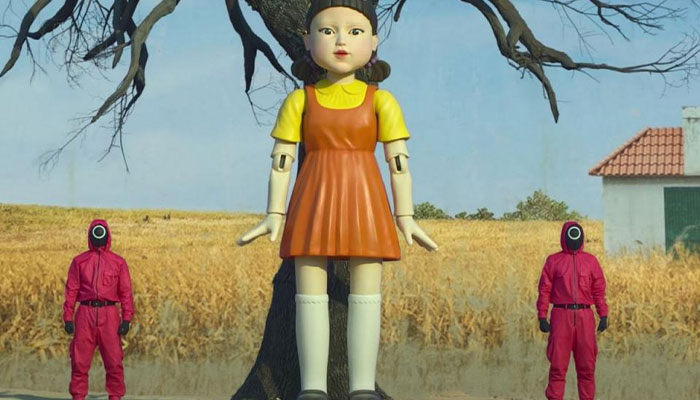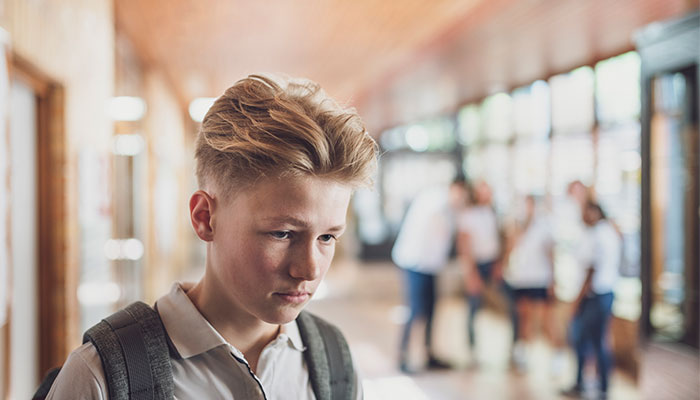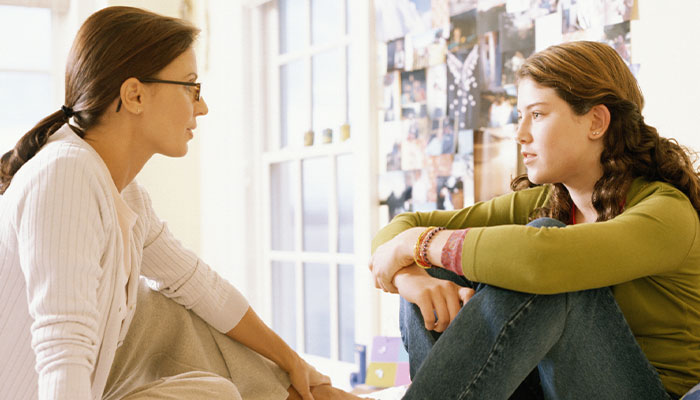Squid Game sees a group of desperate people competing in children’s games for money. What they don’t realise when they sign up is that the losers aren’t just sent home: they’re executed.

Consequences: The games featured in Squid Games are showing up in schoolyards around the world. Picture credit: Netflix
While the series is firmly aimed at adults, it’s easily accessible and children are watching it. As a result, the games featured in the show, like red light, green light – or statues, as it’s better known in Australia – are being reported as showing up in schoolyards around the world, with children coming under pressure to play and the losers facing anything from a punch to a more serious beating.
What does peer pressure look like?
In primary schools, peer pressure centres on the games the children play, the TV shows they watch, or material things like the latest toys or shoes. It’s also very common in friendships, where children will be pressured into ostracising others. It might not be something they want to do, but at the same time, everyone else is doing it and they don’t want to lose their friends.
The same applies to games like red light, green light: everyone else is playing, so they feel like they’ll be ostracised if they don’t join in. Wanting to be part of the group is normal human behaviour.
Once children reach adolescence, it’s normal for them to begin putting less value on their family’s opinions, and more value on those of their friends.
Peer pressure is essentially the same at high school – material things like clothes and tech, how they spend their time, who they spend it with – but it becomes more refined. Teenagers have more opportunities to access the adult world but without an adult’s more evolved sense of consequences and responsibility.
Once children reach adolescence, it’s normal for them to begin putting less value on their family’s opinions, and more value on those of their friends and on what they see in the media they’re consuming, including social media.
This is a natural part of working out how they think and what sort of adult they want to be. They’re building their skills, and they have to be exposed to these situations to learn to make decisions for themselves.
What consequences can peer pressure have?
Peer pressure can have a severe impact on kids’ self-esteem and emotional wellbeing. They are trying to juggle their own expectations with those of their families and their peers, and sometimes these don’t line up.

Mental health alert: Failing to meet peers’ expectations can have a huge influence on how children feel about themselves.
This can develop into mental health disorders such as social anxiety when they are trying to avoid negative judgment from others, but everyone has different opinions and they are still trying to work out what their own opinions are.
Peer pressure is no longer just in the schoolyard, with social media bringing it into every facet of their lives. There’s an emphasis on looking, dressing, and living their lives a certain way. Social media shows them standards that are not always achievable but how can a young person know that?
Manage your own emotions in the situation, and try to keep your own anxiety or anger out of the conversation.
The result is they end up feeling different, left out, and as though the problem is with them. In general, peer pressure discourages difference, tells kids that in order to be valuable, they need to meet these external expectations.
The consequences of not meeting these standards may be being bullied or ostracised, and these things have a huge influence on how they feel about themselves, and their mental health now and in the future.
How can we support kids through peer pressure?
Whether young people are being pushed into playing a schoolyard game or into adult behaviours they aren’t ready for, the best way to support them through peer pressure is to approach the issue from a point of curiosity, of interest in their lives.

Advice for parents: Approach the issue from a point of curiosity, and validate their feelings.
Manage your own emotions in the situation, and try to keep your own anxiety or anger out of the conversation. Children are very good at picking up on emotions without understanding the reasoning behind them, and it may deter them from talking to you.
Ask questions about what’s worrying them or making them feel uncomfortable and validate their feelings. Once you’ve reached a mutual understanding of how they’re feeling and why, you can enter a joint problem-solving mode.
It’s important not to dismiss the child’s concerns or tell them how to solve the problem, but to discuss options. The child may already know what to do but wants you to support their decision.
The issues raised by peer pressure can be complex and difficult to solve, and children won’t always be receptive to talking to their families about what’s worrying them but knowing they can do it without consequences is an important starting point.
Roxanne Goff is a Clinical Psychologist at the Centre for Emotional Health Clinic, Macquarie University








